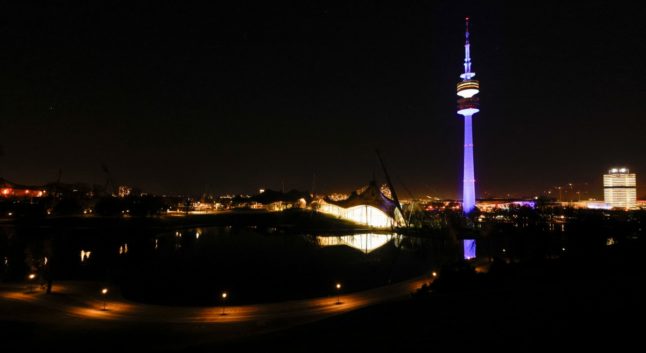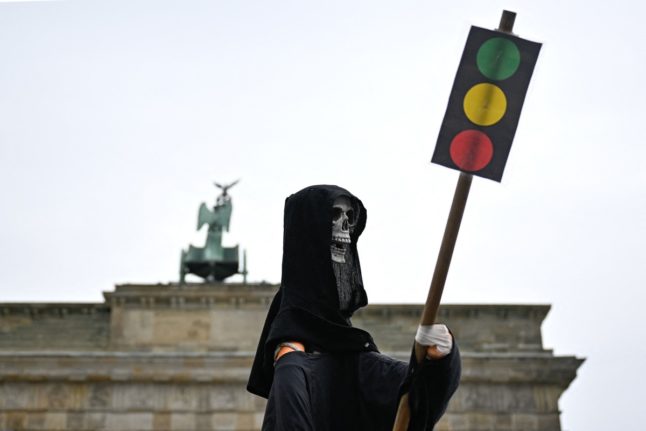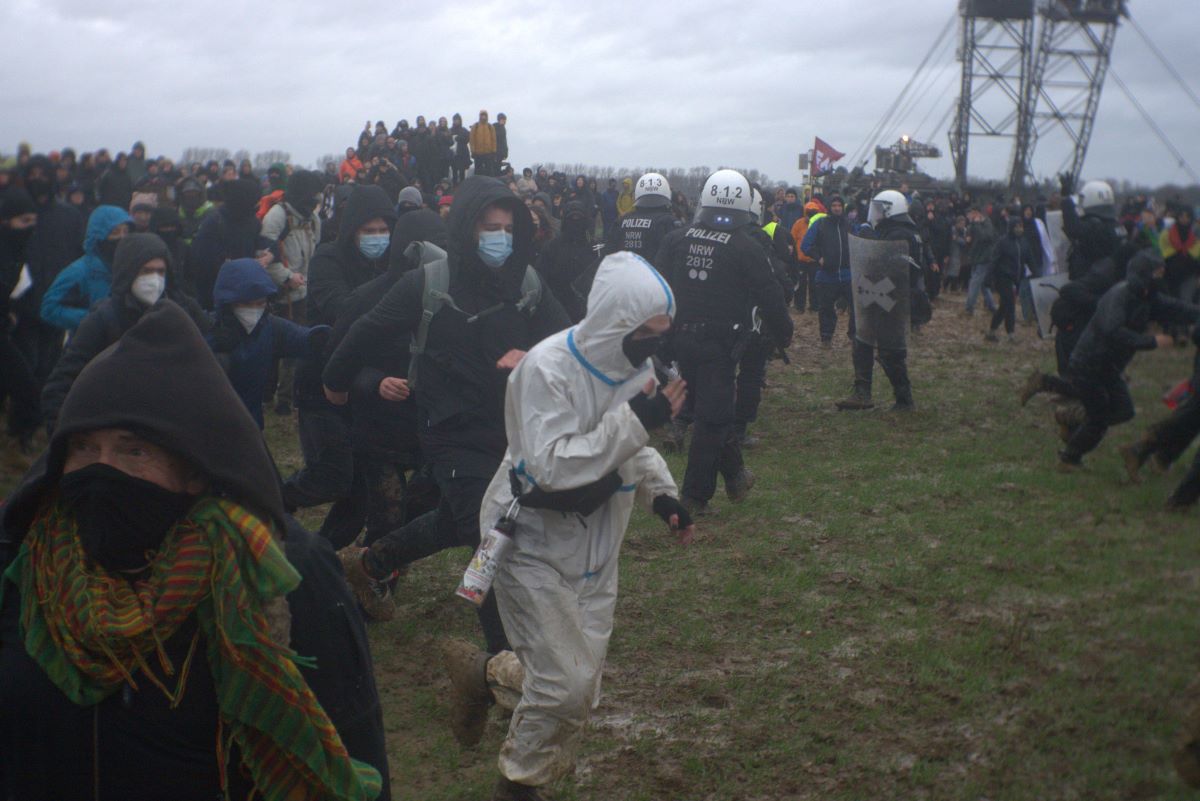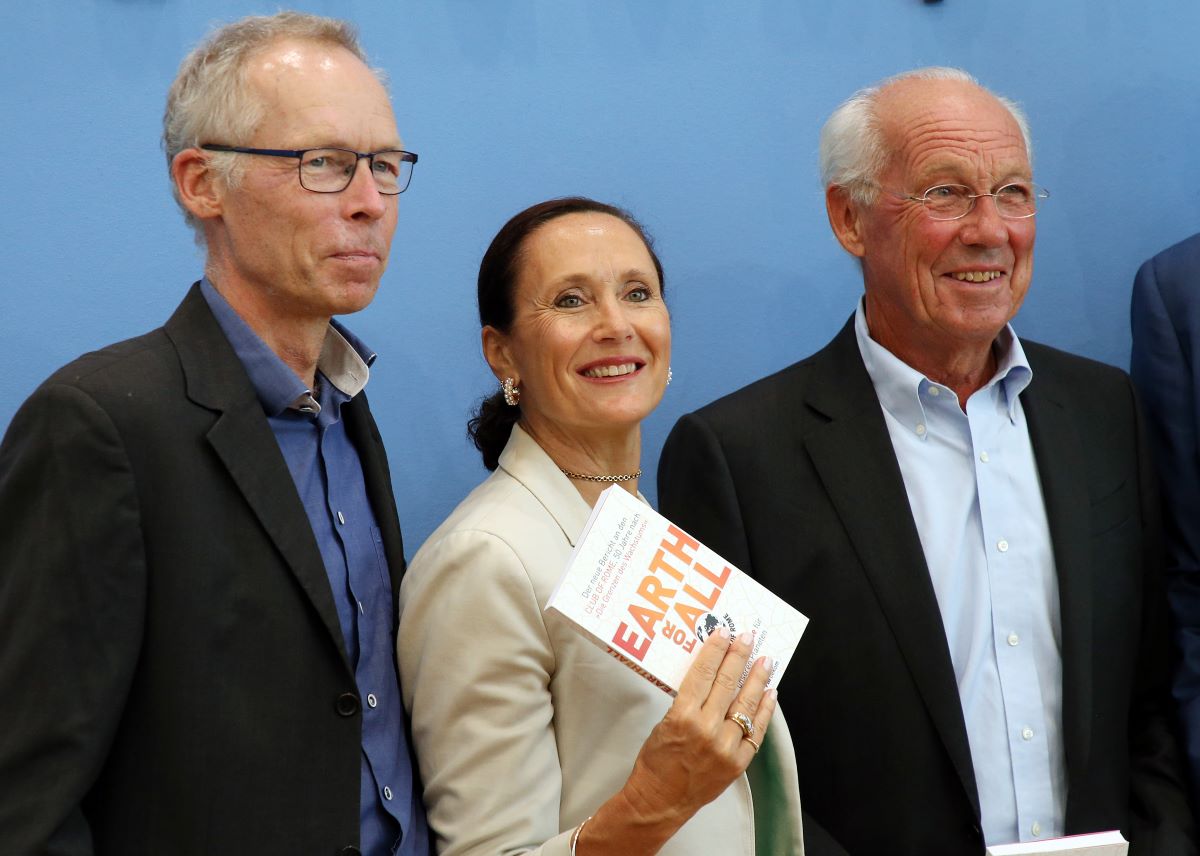Tens of thousands of Germans turned out across the country on Saturday to mark International Holocaust Remembrance Day, just days after a string of protests against right-wing extremists.
Chancellor Olaf Scholz, who earlier this month joined a march against the far right, on Saturday welcomed what he said were “millions of fellow citizens marching in the streets” of Germany.
“Never again,” Scholz vowed Saturday as police in the western city of Duesseldorf said about 100,000 people joined the peaceful protest there.
Demonstrations were planned in 300 towns and villages across the country this weekend, according to the alliance “Together against the extreme right”.
In the northern city of Kiel, police said 11,500 people had gathered before midday.
“Democracy is not for the timid”, read placards alongside others saying, “Red card for the AfD” party of the extreme right.
Physiotherapist Johannes Boecker, aged 29, told AFP, “It was important to demonstrate in memory of the victims of national socialism and also against the rise of the extreme right.”
In Stuttgart, where a couple of thousand people gathered, 60-year-old Margrit Walter told AFP: “I want to create a Nazi-free zone for my grand-daughter.”
‘Never again is every day’
Scholz, who had turned out at a protest two weeks ago in Potsdam, close to the capital, said he was delighted to see people “stand up”.
“Never again requires everybody’s vigilance. Our democracy is not a gift from God, it is made by men,” the chancellor said. “Never again is every day.”
Defence Minister Boris Pistorius joined the protesters in his northwestern hometown of Osnabrueck, where he was born.
“There are three times as many demonstrations as last week, particularly in the east of Germany,” said in a statement the citizen’s alliance Campact, which is among the organisers of the protest movement.
It is in the east, formerly communist East Germany, where the AfD finds its biggest following.
Holocaust Day, commemorating the murder of six million Jews during World War Two, falls on the anniversary of the liberation of the Auschwitz-Birkenau death camp by Soviet troops on January 27, 1945.
In Poland, site of the former camp, Auschwitz survivor Halina Birenbaum, aged 95, lamented anti-Jewish protests around the world and the “barbaric and long Russian attack against Ukraine… the barbaric terrorist attacks by Hamas and war on every side.
“For me it makes the Holocaust go on,” she said.
In Germany, this year’s 79th Holocaust anniversary came shortly after a report by investigative outlet Correctiv that revealed that AfD members had discussed the mass expulsion of immigrants and “non-assimilated citizens” at a November meeting with extremists.
The news sent shockwaves across Germany at a time when the AfD is soaring in opinion polls, just months ahead of three major regional elections in eastern Germany where their support is strongest.
Interior Minister Nancy Faeser compared the extremist meeting on foreigners with the 1942 Wannsee conference when the Nazis plotted to exterminate European Jews.





 Please whitelist us to continue reading.
Please whitelist us to continue reading.
Member comments